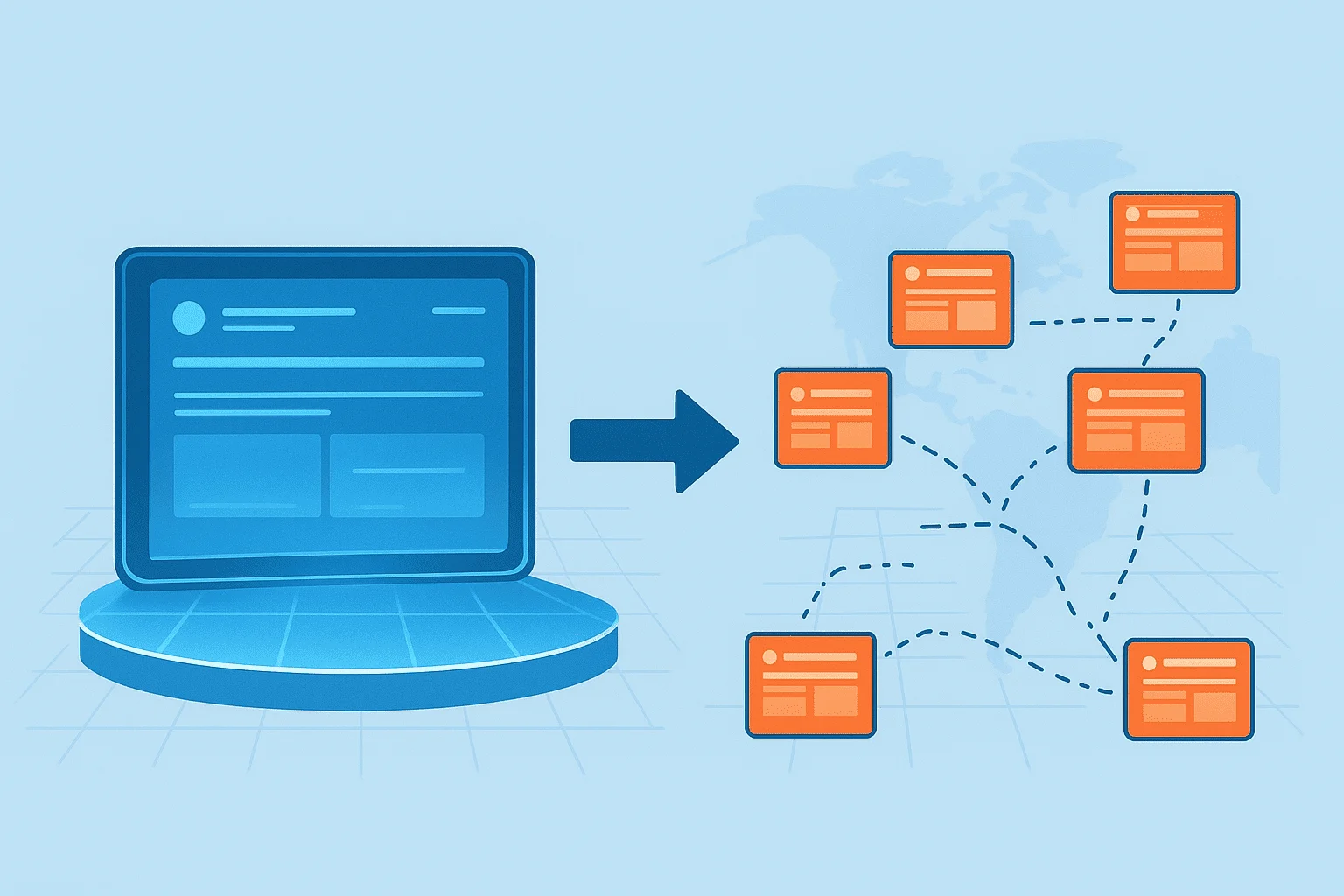You know what really changed after Backpage got shut down? The whole online classifieds market just shattered into a bunch of small pieces. Everyone used to hang out on one platform, and now—well, everyone's doing their own thing. Today the industry is worth about $39 billion, and every platform is trying to grab their users. After the whole FOSTA-SESTA thing and the arrests of Backpage's owners, sure, more "safe" and advanced services appeared. But here's the thing: now everything's so fragmented that it's basically harder for cops to find trafficking victims—the authorities themselves admit this, no joke, it's written right there in the GAO report.
Now people have choices—want premium with strict verification? Pay up. Don't want to pay—go to free aggregators where you'll get scammed in no time. Or there are these "ethical" services that sex workers themselves set up for their own. Anyway, figuring out this mess has become really important, especially when more than half of sex workers have gone online, and AI and biometrics have become an integral part of this whole scene.
What actually happened with Backpage and why was it shut down?
On April 6, 2018, the feds (FBI, postal inspectors, and the IRS) came and just seized Backpage.com, plus arrested Michael Lacey and James Larkin at their homes in Arizona. The DOJ slapped them with 93 (!) charges—for prostitution, money laundering, violating various laws. The site, by the way, started in 2004 as an alternative to Craigslist, and by the time it was shut down it was already worth over half a billion dollars and operated in almost a thousand cities worldwide.
In 2017, senators conducted an investigation and found that Backpage was somehow involved in 73% of all child trafficking cases in the US reported to the National Center for Missing and Exploited Children. Money? 82% of revenue came from adult advertising—that's more than $39 million just for 2012-2013! At its peak, there were literally a million (!) prostitution ads posted per day. And guess what? Backpage employees actually edited ads, removing suspicious words like "Lolita" and "young" so the police wouldn't catch on. So they knew perfectly well what they were doing.
But here's what's interesting: classified DOJ documents from 2012-2013 show that an FBI agent called Backpage "remarkably responsive" compared to other sites. Like, they responded to requests in almost an hour, gave info even without a subpoena if the case was urgent, and themselves reported monthly if they found anything suspicious. In 2011 they were even given a certificate of appreciation for cooperation! All this info, by the way, was hidden from the defense at trial.
And now pay attention: five days after Backpage was shut down, Trump signed FOSTA-SESTA. This law removed Section 230 protection for sites if they're connected to trafficking—now owners can actually be imprisoned if they even knowingly facilitate prostitution. But here's the kicker—the guys from Backpage were tried not under this new law, but under old rules. So why was there even a need to create a new law? The question remained open.
How the industry changed after Backpage's closure
Right after the closure—well, it was real shock content. Sex advertising plummeted by 62%. There were about 2.75 million ads in March, and in April 2018—barely a million, if you believe the calculations of childsafe.ai CEO Rob Spectre. Craigslist played it safe: they removed "Personals" on March 23, even before FOSTA-SESTA was passed. Like "any tool can be used for the wrong purpose"—well yeah, like a screwdriver in a pickle jar. Reddit also didn't stand aside—shut down all sex-related subreddits. A bunch of escort platforms just disappeared or moved offshore.
But the chaos didn't last long. By September 2018, the market had grown back to 75% of its former scale, writes the Washington Post. Marinus Analytics noted 146,000 sex ads per day on top escort sites by fall. Everything became wildly fragmented: one big platform broke up into a bunch of small ones, many went offshore to avoid falling under American laws. Cherry on top: a 2024 study in Management Science claims—closing Backpage and Craigslist didn't affect prostitution arrests, violence levels, or human trafficking reports. Sex markets just migrated to other sites—that's all.
But for sex workers, the consequences were, to put it mildly, not great. A Hacking/Hustling survey in January 2020 showed—almost 34% noted that violence from clients increased after FOSTA-SESTA, and 72.5% started suffering more financially. People were literally "pushed to pimps" to somehow find work, many returned to toxic relationships just to not end up on the street. Street work increased, and it's way more dangerous than filtering clients online. Police in Riverside County, California reported: after Backpage closed, street prostitution went up because quotas weren't canceled—only now it's all not online, but on the pavement.
For cops, this all turned into a headache too. The GAO government report writes that the FBI now has way fewer chances to identify trafficking victims and catch criminals. Everyone used to hang out on one platform, and now—a mess of dozens of small sites, most of which are also abroad. Getting evidence became a real pain: through offshore you can wait for a response to a request for months, if not years.
And the finale—in seven years after FOSTA-SESTA, the DOJ actually used the new law only once: in 2020 they arrested Wilhan Martono for running CityxGuide (like a Backpage replacement), he pleaded guilty in 2021 and became the first convicted under FOSTA. And civil compensation for victims—zero, not a single case, this is official according to the GAO report from June 2021. That's the kind of "fight" it is.

Top 4 Verified Backpage Alternatives in 2025
LolliHub: A fresh wind among adult classifieds platforms
LolliHub.com—well, really a breath of fresh air after all this Backpage chaos. A brand new platform, made with modern risks in mind, the thing here is—security, user-friendly atmosphere, plus it's not limited to one country at all. Here you have the US, Europe, Asia, and basically almost anywhere.
What's cool? The interface doesn't annoy, everything flies on mobile, categories—plenty to choose from, listing options are also a ton. They don't joke about security: filters, anti-fraud, anyway, it's not so easy to get scammed. Prices are flexible, there's a whole bunch of plans. Registering and posting an ad—couldn't be simpler, you don't need to be a genius.
If after Backpage closed you were looking for something sensible—here it is, a universal solution. A mix of modern style, real security and convenience—I wouldn't be surprised if LolliHub really takes off in 2025.
Tryst: A platform with soul—by sex workers and for sex workers
Tryst.link—this is where you really feel the difference. This isn't just a service, but a community that was built by those who know all the nuances of the industry from the inside. Assembly Four made it in 2018 when FOSTA-SESTA broke everything, and now Tryst is available almost everywhere: USA, Europe, Asia, Canada, Britain.
Starting plan—free, but only after manual profile verification. No stupid bots, real people check everything, and the standards here were written by the workers themselves. If you want more features—paid plans start at $35 per month.
Pros: they really support LGBTQ+, prioritize marginalized communities, no toxic stuff. Everything's transparent, all conditions are clear. No intermediaries, no one gets between provider and client.
Slixa: Luxury market with strict verification
Slixa—this isn't just classifieds, this is a luxury market for escort. They operate in the US, Canada, UK, Australia. Clients pay from $800 per hour (yes, not a typo), and this is just the minimum, so it won't be budget-friendly here.
How much those who post ads pay—they hide the numbers, but it's known that passing verification isn't easy: you need professional photos, all images are carefully checked, they can reject you if you don't measure up.
The interface is stylish, like in a glossy magazine. The focus is not on the crowd, but on quality: the user base is smaller (27,000 per day versus 162,000 on Eros), but the audience is—solvent, and the reputation is really solid. If you want luxury, not mass market—this is the place.
Eros: Industry dinosaur that's still in the game
Eros.com—this is like the grandfather among all, been operating since 1997 and still alive and kicking. Main focus—top escort, the US base is just huge, and abroad they're no slouch either.
For providers, listing will cost around $400 per month (if you're in somewhere like New York), for clients viewing is free. There's an "Eros-verified" status, but not for everyone—only selected ones pass.
The visuals are polished like a new iPhone. Profiles are detailed, all info laid out clearly. Yes, they had scandals, but despite everything, Eros keeps the bar high, and 162,000 visitors per day—that's no joke. Anyway, if you want proven classics—come here.
Comparative table of key platforms
| Platform |
Best for |
Price |
Verification |
Global reach |
| LolliHub |
Universal modern platform |
Competitive |
Security system |
★★★★★ |
| Tryst |
Ethical, worker-led |
$35/month |
Manual, strict |
★★★★★ |
| Slixa |
Luxury, premium |
$800+/hour |
Strict, photo |
★★★★☆ |
| Eros |
Established, USA |
$400/month |
Selective |
★★★★☆ |

How to spot scammers and stay safe
Now almost every classifieds board is fighting scammers tooth and nail. It's not just vigilant moderators sitting there, but huge AI things with 97% accuracy detecting fake profiles. There's Random Forest and LSTM—everything that's trendy in machine learning is running to catch such clever schemes that an ordinary person wouldn't even blink an eye. They catch VoIP numbers instead of real phones, run photos through the internet to detect stolen pictures, parse texts for hackneyed phrases "hurry up, only two hours left!"—anyway, they won't let any trickster relax.
And now about red flags. If someone suddenly starts writing too persistently, rushing, demanding "let's quickly complete the deal, or tomorrow everything will disappear," or even better—immediately asks for passport, social security number and everything else, well you get it, this is a clear signal "stop, dude, you're about to get scammed." Plus, if they start pushing to go to WhatsApp or some Telegram, and not write through the site—that's also not just like that.
With money, it's a whole separate story: if they offer you to pay through Western Union, gift cards, or promise "I'll pay even more, just transfer me the difference"—run. Never pay in advance and don't agree to strange payment schemes. And if a "friend," "nephew," or "courier" suddenly appears in the deal who will take everything, and the seller disappears—classic.
Profiles can also be scanned for suspiciousness: VoIP instead of a normal number? Pictures are somehow too glossy or as if from stock photos? The profile says nothing about the person, or the account appeared yesterday—all this is reason to tense up. Even worse if they shove fake documents at you, the account is closed, and activity is somehow ragged—now empty, then suddenly a flurry of messages.
Behavior also gets caught: if a person doesn't want to meet in a crowded place, calls somewhere in the backwoods or generally demands to complete the deal "remotely," asks for your data or credit report before you even met—why do you need this? Quickly created accounts and activity spikes—also a bell.
Now about how to sleep peacefully. Enable two-factor authentication on all accounts, set passwords not "qwerty123," but something really complex, and don't repeat them on different sites. Change passwords every couple of months, store everything in a password manager, don't scatter personal info left and right, always write first through the platform's messages, not immediately to a stranger's DM. You can make a separate email for such deals and get Google Voice so as not to expose your mobile.
Meet only in crowded, well-lit places—really, not in an alley. Don't bring strangers to your home (and don't go yourself if invited—you're not in the TV series "Lost"!). Take a friend or at least tell someone where you're going and when you'll be back. Share location through your phone, and listen to your intuition—if something's wrong, just leave.
With money—only in-person meeting, payment after inspection. Better to pay through PayPal or something built into the platform itself, without any transfers and gift cards. If they shove a check at you—check if it's fake. On expensive stuff use escrow, record everything you discuss with the other party. And yes, almost every second buyer now really worries about their data—83% consider it super important, and 80% want assurance that their contacts won't be leaked (PwC data for 2024, if anyone likes precision).
In general, take care of yourself and don't let yourself get scammed—scammers are just waiting for where you'll slip up.

Technological innovations are transforming the industry
Oh, the online classifieds market now, honestly, is like it's gone crazy on the wave of all these AI innovations. Well, imagine: already a quarter of top platforms have stuffed artificial intelligence into their services, and now it's spinning personalized recommendations left and right. Machine learning algorithms literally adapt to your preferences—you looked at an ad for a bike, and here are ten more similar ones, or even better. AI-based chatbots? They're not just greeting you nicely anymore, but really helping buyers and sellers communicate instantly, without those "please wait for an operator." And moderation and spam filters? This is no longer just a "mom, I'm in spam" filter, but entire systems that clean platforms of garbage faster than you can blink. Search has also gotten smarter—now good ads are really easier to find.
Mobile devices rule, no kidding. This year mobile traffic is already 60% of the entire web, and everything that happens on desktops is gradually becoming a thing of the past. Mobile advertising took up as much as 85% of the market—apparently, banners on a computer don't excite anyone anymore. Americans spend a third of their lives on their phones, and Gen Z is on a whole new level: they have five screens at once, almost everyone has a smartphone, and they don't let it out of their hands for a minute.
AR—this is a whole separate story. Now you can try on sneakers or see how a sofa will look in your room without getting out of bed. In real estate and auto, no one works without virtual tours anymore—people just want to see everything right away, preferably in 3D. AR advertising, by the way, will soon be everywhere—it'll reach $6.68 billion next year, if you believe Emodo. And geolocation—almost magic: you walk past a coffee shop, and you already get an offer with a discount. All this makes advertising not just accurate, but like a shot in the bullseye.
Verification—here it's generally like in a movie about the future. AI scans your ID, compares with databases around the world, matches thousands of data points in seconds. Selfie? No problem: compared with the photo in the passport, checked that you're alive, not Photoshop. Even if you have bad lighting or your face is half covered—the system will tell you how to take a normal picture.
And fighting scammers—this is like a chess match with bots. There's Random Forest with 97% accuracy on small datasets, and LSTM for analyzing large arrays, and neural networks that notice things that a living person wouldn't notice in a hundred years. XGBoost is also in the game—a classic. Everything's fully automated: VoIP numbers, reverse image search (so they don't steal other people's faces), keyword analysis, tracking suspicious payments... Anyway, if someone tries to cheat or deceive—most likely they'll be detected faster than they realize they're caught.
That's how we live. Everything's fast, smart and, honestly—sometimes even too smart.
Forecasts and the future of the classifieds market
Well, the numbers here, honestly, are spinning like on the Bitcoin exchange in 2017. The global online classifieds market, if you believe Straits Research, is already approaching $27 billion in 2024, and by 2033 it's going to step over $61 billion. And this is with annual growth of almost 10%. Not only Straits is excited: Future Market Insights throws its forecasts—like, by 2035 already $39 billion, Business Research Insights isn't lagging behind with almost $62 billion by the same year. Technavio generally promises growth of more than $34 billion in just four years. Anyway, everyone's sure the market is charging ahead like a locomotive.
Now about Asia and the Pacific—that's where life is really boiling. There are already almost 3 billion people online—that's, by the way, more than half of all users on the planet! This region, by the way, is picking up pace: almost 60% of all global market growth in 2024—that's them. Plus, the government isn't sleeping: they're doing Digital India, after COVID people got into online trading, they drive almost all exports to each other within the region. India will generally rule soon, already grabbed $76 billion in investment, and it seems by 2028 they'll come out first in volume.
In the States it's not boring either—they have 40% of the market. Americans, as usual, live online: almost every adult is online, internet advertising will soon cost 1% of GDP, everyone has smartphones at hand, and they're so glued to mobile apps that 28% of all time goes there. But here's the thing: their percentage share is slowly falling, all because Asia is bursting in much more vigorously.
Generation Z is generally flipping the game. These are those who were born with a phone in hand and TikTok instead of a book. Almost 98% of young people 16-24—with a smartphone, can sit on five screens at once, 75% have forgotten what a computer is, everything's on the phone. Almost half—influencers or at least feel like it. By 2029 Gen Z will already spend more than baby boomers, and by 2035 they'll add almost $9 trillion to the global economy. Social networks and chatbots—their element, and if the choice is between advertising and a blogger's advice, they'll choose the blogger without thinking.
And internet search? Here everything's changing before our eyes. People jump from platform to platform like grasshoppers: if at the beginning of 2024 28% changed platforms, then by the end of the year—already almost 35%. Google is losing positions—from 73% to 67% in six months, and ChatGPT jumped three times for general search. Users who "never tried AI" are becoming fewer, but those who use it every day have almost tripled. Everyone combines: Facebook and Insta for communication, YouTube and TikTok—to have a laugh, LinkedIn—to find a job, and for deals—their own special platforms. Multi-platform is now not a trendy trend, but harsh reality.
Conclusion: navigating the modern classifieds landscape
When Backpage was shut down in April 2018, online classifieds were literally reshaped. Everything scattered into a bunch of platforms—now each has its own features, rules, everyone going their own way. LolliHub now seems like the flagship of the new generation—they emphasize security and are really user-friendly. Tryst is a whole separate story: a platform under the control of the workers themselves, manual verification of ads, policies—like a breath of fresh air. Slixa and Eros still hold the premium segment—everything's clear with them, strict, and you want to put on a suit for them.
Technologies are changing everything before our eyes: AI that detects scammers with 97% accuracy—sounds like magic, but it's a fact. Biometrics—sometimes confirmation in 6 seconds, you don't even have time to blink. Everything's focused on mobile, because already more than 60% of traffic is from there. AR is also getting in—by 2025 the market is $6.68 billion, crazy numbers. Plus geolocation—you can find anyone in a couple of clicks, real 21st century magic.
The market is growing like yeast: by 2033 they promise to go over $61 billion, growth of 9-13% per year—who would complain? Asia is breaking ahead, Gen Z is dictating new rules—multi-platform strategies rule, mobile has captured everything, 98% of traffic through them. The whole world is now in the palm of your hand, literally.
Security—this, of course, is a painful topic. If you want to survive, play big: choose platforms where they check everyone, use two-factor authentication, meet only during the day and in crowded places, don't fall for transfers and gift cards—that's a red flag. VoIP numbers, stock photos, trying to rush you—better to ignore right away. Trust your gut, don't go where something's wrong, and record everything—it'll come in handy if anything. People are really worried: 83% worry about data security, and after FOSTA-SESTA a third of sex workers experienced increased violence—so the question of choosing a platform with protection is not just important, but literally vital.
It will only get more fun: AI will integrate even deeper, blockchain for transparent money, voice search—already now more than 30% of users search this way, AR and VR—to "touch" goods online. Competitors are merging, combining—the time of big players. Those who bet on proven platforms, don't forget about cyber hygiene, follow trends and don't fall for too tempting offers will survive in this meat grinder. In the end, staying afloat means finding a balance between accessibility, privacy and security. After Backpage the world became decentralized and chaotic, but that's what makes it interesting—there are now enough opportunities and traps for everyone.

 James Whitaker
James Whitaker








